Here’s something we hear all the time: if only more people knew more about environmental problems, then they would certainly act in some ecologically beneficial way. But the problem is, it’s not true. We’re now deluged with data about the climate crisis; and yet, this abundance of available environmental information has not led to an abundance of environmental action.
This deficit model of climate communication is flawed, even though scientists, environmentalists, and other proponents of climate action continue to speak and act as if people would do more if they just knew more about the climate crisis and understood the science of climate change.
Heather Houser writes about environmental ideas and themes in art, literature, culture, and the humanities. Her work blossoms with keen insights about the importance of culture in confronting ecological crisis.
Heather is Professor of English at The University of Texas at Austin. I met her many years ago in Austin, when I was developing a film about dance and environmental justice. She is both a dancer and an environmental humanities scholar.
Our conversation explores climate information overload, the idea of what she calls eco-sickness in literature, the thorny topic of human population size, and whether artists should reject or rework artistic tools of the past that might be tainted by colonialism, racism, or other forms of oppression.
You can listen on Substack, Apple Podcasts, and other podcast platforms.
Please rate, review, and share to help us spread the word!
Heather Houser
Heather Houser, Ph.D, is Professor of English at The University of Texas at Austin, and the author of two brilliant books: Infowhelm: Environmental Art & Literature in an Age of Data (2020), and Ecosickness in Contemporary U.S. Fiction: Environment and Affect (2014), which won the 2015 Association for the Study of the Arts of the Present Book Prize and was shortlisted for the 2014 British Society for Literature and Science Book Prize. She is also a co-founder of Planet Texas 2050, UT Austin’s climate resilience-focused research challenge, and has led the following initiatives for the environmental humanities: 2015-16 Texas Institute for Literary & Textual Studies, Environmental Humanities at the University of Texas at Austin, and Texas Ecocritics Network.
Quotation Read by Heather Houser
“It's astounding the first time you realize that a stranger has a body - the realization that he has a body makes him a stranger. It means that you have a body, too. You will live with this forever, and it will spell out the language of your life.”
- James Baldwin, If Beale Street Could Talk
Recommended Readings & Media
Transcript
Intro
John Fiege
Here’s something we hear all the time: if only more people knew more about environmental problems, then they would certainly act in some ecologically beneficial way. But the problem is, it’s not true. We’re now deluged with data about the climate crisis; and yet, this abundance of available environmental information has not led to an abundance of environmental action.
This deficit model of climate communication is flawed, even though scientists, environmentalists, and other proponents of climate action continue to speak and act as if people would do more if they just knew more about the climate crisis and understood the science of climate change.
Heather Houser writes about environmental ideas and themes in art, literature, culture, and the humanities. Her work blossoms with keen insights about the importance of culture in confronting ecological crisis.
Heather Houser
I mean, especially if you are an environmentalist, you pay attention to these issues. But really, even if you're, you know, you're not, there's a lot just so much like information coming at us about, say, the percentage of extinct mammals, right, how many mammal species are extinct, or bird species are extinct? All the data about climate crisis, whether it's like warming temperatures, ocean acidification, you know, how much of the ice sheet has melted? You know, it's all all this data is like, how do you make sense of that? Yeah. What do you do with that? I mean, what do you do with that, not only as a way to understand the phenomena at maybe, you know, objective or straightforward level. But what do you do with that emotionally if you're an artist or communicator.
John Fiege
I’m John Fiege, and this is Chrysalis.
Heather Houser is Professor of English at The University of Texas at Austin. I met her many years ago in Austin, when I was developing a film about dance and environmental justice. Heather is both a dancer and an environmental humanities scholar.
Our conversation explores climate information overload, the idea of what she calls eco-sickness in literature, the thorny topic of human population size, and whether artists should reject or rework artistic tools of the past that might be tainted by colonialism, racism, or other forms of oppression.
Here is Heather Houser.
---
Conversation
John Fiege
So, I'd like to start with an essay you're working on about your childhood, which you shared with me. In this piece, you talk about the instability of your upbringing - from your parents' rocky marriage to their financial woes. And the constant moves that resulted. You moved about thirteen times in your childhood, largely around the Poconos region in Pennsylvania, I think, and to other states as well. In the midst of that instability and constant "shifting ground" as you call it, you found a sense of stability, grounding and joy in dance. You write:
“At this age I hadn't yet met the idea of the plateau or of the precipitous fall. This was the time for the joy of movement, the satisfactions of devotion, and a belief that the alchemy of body, space, music and time can make you other than who you are and where you came from.”
I love this idea of seeing your childhood and who you became through this lens of dance. Can you talk more about where you come from and maybe what your relationship to the rest of nature was as a child? And how this, this alchemy of body, space, music, and time led to your interests in the environment?
Heather Houser
Yeah, thank you. So I was born in the Poconos region of Pennsylvania, which is in the North East part of the state right along the New Jersey border. And if you know it at all, you likely know it as a tourist destination for urbanites, you know. When - this was, I should say I was born there in 1979 and grew up there with one one gap when I lived in Massachusetts, but I lived there from 1979 to 1997.
I think things have changed, but back then, it was - certainly there were a lot of resorts, honeymoon destinations, summer camps, so a large tourist influx from New York and New Jersey and Philadelphia. But then there were the locals like myself, so it was a place of abundant nature, I would say. You know, the Appalachian Trail ended and started there. Lots of lakes. It's a hardwood forest area, lots of ponds and creeks, or, as I say, in that essay, "cricks" my grammy and pappy said. I didn't pick that up, but that's what parts of my family called creeks.
But that was actually not my family's orientation. So I lived in this place with so many things I now wish were right outside my door. And, of course, Austin, TX has its own beautiful environments, but, I honestly did none of that. There was one swimming hole we would go to called the 40-foot. It was a 40-foot jump, which I did not do because I was afraid of heights, but I don't remember swimming in the lakes or the "cricks" aside from that. We never went on hikes, except for maybe, you know, walks in the woods near our house (or houses, since there were many of them).
So that relationship that I now have, like the appreciation and really the need to be outside is, is something that developed really in my college years when I lived in Portland, Oregon. When I think about dance and the environment, personally - and my relationship to it - is about movement. Being able to move in space, I think is one of the continuites from my dance persona to my like, environmental appreciation. And even though those are completely divorced - or separate, just didn't really exist when I was a kid - I feel that continuity now for sure.
John Fiege
And you know when you were in the Poconos area as a child. Did you have a, did you have a sense of people from the cities coming there as like a location of nature and looking for this kind of pristine wilderness experience, did you have a sense of that?
Heather Houser
Oh absolutely, and you know, I mean, this is - I was very hard on the place when I lived there. I mean, I really wanted out. I went almost as far as you could go within the continental United States when I went to college. Kind of foolishly to go to a private liberal arts college across the country. But it worked out OK. But I did not - I mean, I definitely knew that people were coming to the Poconos for that experience of nature, and wilderness. And you would, quite honestly - I interacted a lot with tourists because I worked at an ice cream shop - one of those time-honored things you do on the summer vacation is going to the ice-cream shop.
John Fiege
How iconic.
Heather Houser
But you know, I was there - not stuck there, I wouldn't say that. Because I did like that job and my bosses and coworkers so I didn't feel stuck, but certainly different experience. And so I had a lot of contact with tourists that way, but really never befriended any tourists or had deep interactions with them, but it was clear that was a big part of the experience, was something so drastically different from, say, NYC or Philadelphia. And I mean we used to kind of, you know, make fun of or just roll our eyes at tourists, sort of fascinated by the so-called "wildlife" that for us was much more domesticated.
You know, like, certainly we had wildlife, we had bears that would come up. We lived in pretty remote - even within the Poconos - pretty remote parts, 'cause there is like a downtown area that's a little bit denser. But we always lived outside of that. And we had bears that would walk up our driveway, and we had, we had turkeys like a turkey mound that they just hung out on, and these sorts of things. So there was some, there were some animals that were, maybe even felt a little bit wilder even to us.
But yeah, so we would just find it amusing that tourists would find things like foxes or you know, deer, like really, fascinating, and even frightening, right? Like these things that you're not used to seeing are often scary. Even if there isn't much reason to be afraid of them.
You know, I wasn't taking as much advantage of what surrounded me as I would at this point in my life, and so in some sense, I think the people who are coming in maybe appreciated it more than I did because it was such a stark difference from their day-to-day reality. But of course, like most tourist destinations, it had it's very - pretty detrimental effects, right? All that tourism.
John Fiege
Right, the development and the trash and the traffic.
Heather Houser
Yeah, traffic and all of that, yeah.
John Fiege
Well, let's fast forward to what you're doing now. So, what are the environmental humanities, and how did you come to focus your work within that field?
Heather Houser
Yeah, so the environmental humanities. I mean, it really encompasses a cluster of academic disciplines - like history and literary studies and religious studies and anthropology. Often it can capture the arts too, creative arts, but really (that academic cluster aside), it's it's really the - the impetus behind the environmental humanities is, a recognition that we can't understand human relationships to the more-than-human (or "nature," as we you know, typically call it), we really can't understand that through scientific or policy or economic approaches alone. That we need to also understand the cultural aspects of that. We need to understand the artistic aspects of human relationships to nature.
So, that's one dimension of that. Like, if we're going to understand human relationships to nature, which vary over time and across cultures, we really can't just rely on some quantitative analyses. But another dimension, I think, looking forward, is if - thinking especially of environmental issues, challenges disasters. We also need those cultural, historical, and artistic understandings if we are going to really address these challenges, especially in an equitable manner. That - you know thinking about the history of, for example, climate policy you know? Or thinking about the history of colonialism when we're thinking about how to respond to climate crisis today, you know, we need those historical dimensions if we're going to move people.
And this "we" is variable, right? Like it's not that there's a uniform across the environmental humanities, there's certainly not a uniform outcome that people have in mind. But if you're thinking about responses to say climate crisis or extinction, whatever it might be, that you need to also marshal all that cultural representation, all that artistic expression, bring to the conversation. Because that's really what moves people, it's what helps people imagine other futures, and also to reflect on what brought us to the present. So it's really, you know, historical, cultural, and artistic and expressive - and within the cultural I also think of, you know, spiritual and religious dimensions of environmental relation and responses.
John Fiege
Right.
Heather Houser
You asked me how I came to this - I was an English major as an undergraduate, and then took some time not in school. But when I went back to graduate school, I didn't know that that would be a focus. I actually thought, I had lived in Portland Oregon, and living there had become much more attuned to environmentalism, largely of an urban nature, but not necessarily exclusively. And also just had become - became much more of an outdoors person, camping, backpacking, hiking. All of those things.
But I thought that was a part of my personal and political life and not part of my academic or intellectual life, right? But midway or so through my graduate - time in Graduate School - you know, you need to define your dissertation. And I really had two paths I was considering. And one was just was finding a way to merge my personal interest in commitments to environmentalism with my academic life, and I wasn't sure I wanted to do that. Actually, I didn't have coursework in that area, but there was my advisor in a professor, Ursula Heiser, she's really a one of the most prominent people in the field of environmental humanities. So she was she was at Stanford, where I went to grad school. So I certainly had someone to guide me, which she did, amazingly. But yeah, it was, it was a question for me of whether to keep certain spheres of my life separate or to try to bring them together, and I decided to bring them together.
John Fiege
And was that a good decision, in retrospect?
Heather Houser
I made that decision because I thought that could carry me through some of those hard and dark times of being a graduate student, like to sort of think about my commitments beyond the academic sphere. But it has - it is challenging, in that it can feel like everything is a part of everything, and you know, activism or serving on advisory groups or whatever it might be outside of the academic world, and suddenly it's not at all separate, right? So, I don't know. I think it served me well. But there are weeks and days where it can feel, yeah, like there is no "outside".
John Fiege
Well, I can feel the passion of it in how you write, and what you write, so I think that's, you know, that's definitely the positive side of it. So, your first book is called Ecosickness in Contemporary U.S. Fiction, so can you tell me - what is "ecosickness"?
Heather Houser
So that idea is - it's really capturing how often, environmental degradation or change and bodily damage, or change - how often those things go together. There were a number of writers I was noticing, and I talk about - Leslie Marmon Silko and Richard Powers, David Foster Wallace, among others - in their writing, you know, they are taking stock of environmental damage, in most cases in the literature that I was examining. And at the same time, they're taking account of all of the transformations to bodies that are happening in the 21st century.
And you know, I think in a more scientific register or even a more maybe environmental justice register, we often think of these as "causal relationships," right? So there's a toxin that a polluting industry is releasing into the water, and people consume that. And then they experience maybe cancer or neurological change or, you know, infertility or reproductive changes. I think that causal relationship between the environment and the body is pretty prominent in our thinking of environmental health, but a lot of these authors weren't thinking so directly causally. It was more - they're interested in how we actually can conceptualize the environment, and what's happening to it, in terms of the body - and a body that's sick rather than a healthy body.
Now back in the 19th century in the US, with some of the white male proto- or early environmentalists like John Muir, Henry David Thoreau. You know, that relationship between the environment and the body was also often one of health, and robustness, and, you know, getting out into nature and climbing mountains - and you know, sort of overcoming some of the challenges.
But in the 21st century, or late 20th century and 21st century, certainly that still exists, but we often have an understanding of the relationship between the body and the environment through, through sickness or damage or some kind. So the book is like tracking how really, that phenomenon, that it exists, and also then how it manifests very formally, artistically in a set of novels and memoirs.
John Fiege
Yeah, and you mentioned you mentioned Rachel Carson as well, who is one of my favorite writers. And she's known as a non-fiction writer but, it made me think of the opening of Silent Spring, which is kind of written like fiction. I think even referred to it that way. And so I wanted to read just a quick section of that, 'cause I thought maybe - I would be curious to hear how you relate this to this idea of ecosickness. So this is from the opening chapter in Silent Spring called the Fable of Tomorrow. So Rachel Carson writes:
“There was a strange stillness. The birds, for example, where had they gone? Many people spoke of them, puzzled and disturbed. The feeding stations in the backyards were deserted. The few birds seen anywhere where moribund. They trembled violently and could not fly. It was a spring without voices.”
So how does this, how does this passage in this book relate to this larger body of ecosickness literature? You know, in in this example, there's there's sickness in the body of the bird, not body of human, but later in the book she talks about it in the body of humans.
Heather Houser
Well, Rachel Carson is just an amazing writer. I mean, she's certainly probably most popularly known for Silent Spring, but her writings on the ocean are just amazing. And she calls that the fable for reason, so she's already marking it as some you know, somewhat fictional. But of course, fables always point us to deeper truths.
John Fiege
Right.
Heather Houser
So, and there's been - I mean, there's been billions of words written about that opening, I don't really write about that opening, but Carson is really inspirational to me in that project of Ecosickness, but also she's really inspirational for thinking about this relationship between the environment, and the body, through through illness, through rapid transformations that were unforeseen. But that - I mean, there's no causality in that opening, right? The rest of the book is explaining the mechanisms of that, and the sources of the death and disruption of bird populations, among other animals, including humans. But in that opening, right, it's this more evocative feeling of, of the consequences, like there's something out of joint here, right? There's no more birdsong. We don't, maybe yet know why, but we know that that's a problem.
And I mean, I think one of the reasons that so important for thinking about Ecosickness, or you know, environmental health outside of strict causalities. That is, like something that you can conclusively prove through empirical studies, scientific research data, all of that. I think it's important to think outside of those, because it takes a long time - and sometimes it's even impossible - to pin down causalities and that feels really comforting like, especially when you want redress, you want blame, you want compensation, you want quick solutions.
But even before you get there, like to feel that something is wrong and not to ignore it, like that's something that that opening I think really does powerfully, as, as an entree to the rest of the book. And like certainly does for my project of Ecosickness. Like these authors aren't trying to directly explain how, say, depression results from a toxin. It's more thinking about, you know, a toxic environment more broadly and how they coexist and have similar mechanisms and manifestations.
John Fiege
Yeah, well, you know Rachel Carson fits into the next thing I want to talk to you about as well. You know, I think one thing that makes her so powerful is she's, she's a scientist who really - who's been trained as a scientist, really knows the science, and she's a brilliant writer - which is a really rare combination. And I love what you say in the opening of your book about the importance of literary and humanistic knowledge. You talk about how science illiteracy is no longer an option for humanists. But at the same time, you flip that to argue that narrative illiteracy is no longer an option for scientists, or anyone who wants to confront environmental issues. Can you talk about what you mean here?
Heather Houser
Yeah, so um - and that's where that that idea of complementarity comes in, right. Like meeting and sort of both sides coming to a middle more than anyone abandoning a side that is science or art and narrative. There's this amazing book that I write about in my second book, Infowhelm, called Objectivity by Lorraine Daston and Peter Galison, who are historians of science. But they talk about epistemic values - which I know epistemic is a jargon-y term, but basically, the values that are privileged in a knowledge enterprise, like science. And so you know, things like objectivity, things like quantification, causality, universality, things like that.
So also understanding those aspects of science are, I think, part of scientific literacy. But then on the other - you know, the compliment there is when I say that narrative literacy is so important is, I think, goes back to earlier in our conversation. That - I've said this a million times, so I kind of chuckle when I say it, like, data and facts alone are not going to, as you said earlier, "move the needle." It's really through storytelling, understanding the stories and all dimensions of the stories that move people - or don't move people - to think about and act on an issue. And that can often be thought of as science communication. But it's so much more than that, because-
John Fiege
It's not a very exciting term, right?
Heather Houser
And there are people doing great work with that and using the arts for that, so I don't want to dismiss that way of thinking about things, but there's so much - communication, and the way it can be understood, I guess in in “laypersons terms” can seem like unidirectional. Like, we have this bit of information, we need to find the best way to get it out into people’s ears and eyes, right.
But really, I think narrative just introduces so much more complexity that - there really isn't anything unidirectional or predictable about the way stories affect people, right? So, narrative literacy is not only - it's similar to scientific literacy. It's like, “well, what are the stories already out there, and how can those be understood as providing a foundation for environmental relations?” And also, I'm also thinking about environmental futures. But then it also means understanding how narratives work, and they aren't often so predictable or-
John Fiege
Right.
Heather Houser
As some - as one might think.
John Fiege
Yeah, and you say you write in your book that particular tropes, metaphors, and narrative patterns carry an “affective charge” that can activate environmental care, when empirical studies alone cannot. And so if I'm reading this correctly, you're not saying that any kind of storytelling can activate environmental care, but that particular kinds of storytelling can. And I just wonder if you could talk a bit more about that, and maybe even describe some of these tropes, metaphors, and narrative patterns more specifically that you're thinking about.
Heather Houser
Yeah, in Ecosickness, one of the things I was interested in, as I said, their affect or emotion, the way that narratives generate and represent emotions, and how that does a lot of work on its own to, to affect how people are understanding an environmental problem and reacting to it. So for example, the emotion of anxiety. This is a really powerful emotion, in environmental representation of disasters, or future disasters, or, you know, climate change in general. You know, cultivating, generating anxiety is something that a lot of you know, dystopian or apocalyptic environmental narratives will do. It makes us anxious, makes us uncomfortable, makes us uncertain. You know, anxiety is much more amorphous. Like, there might be sources for it, but it becomes this like pervasive, nebulous thing that's very hard to like, solve, or surmount.
So anxiety is this emotion that I think is quite familiar from representations of environmental damage or crisis. And I look at Leslie Marmon Silko's novel Almanac of the Dead, which is a very, very large, sprawling and challenging novel. 'cause it does depict a lot of the horrors of colonialism, and oppression, and violence against indigenous peoples throughout the Americas. But this, it's a novel that really cultivates anxiety. And so I was interested in that as certainly a powerful way to help people think about problems, right? And to recognize them as problems.
But then what happens to that emotion, right? Like is this an emotion - it might lead to care or to awareness, but is it an emotion you can act on? Or is it an emotion that actually shuts you down, because it is so powerful, pervasive, but also overwhelming. So I think about, you know, those. And I also think about an emotion like wonder. You know, very different. Like has a lot of positive associations with it. But you know what, what are some of the environmental understandings and actions that an emotion like wonder can produce?
John Fiege
And another emotion you discuss is optimism. And you have this wonderful discussion of the split between environmental writers and activists on this question of optimism. So does hope fuel our ability to address ecological crisis, or does hope hinder our ability to confront very daunting realities? Or do these contradictory thoughts happen all at the same time? So here's one of my favorite lines from your conclusion:
“Smart grid, smart phones and smart cars won't alone won't deliver us from our dumb ways of living, so much as perpetuate them.”
So can you talk a bit about this complicated, contradictory idea of optimism?
Heather Houser
I think we often hear it with more through the - and you said this a moment ago - through the idea of “hope” because I mean, often we conflate hope and optimism. But some people like to keep them separate. Like that optimism can be taken as an even more, like a stronger expectation that things will just work out okay no matter what. Whereas, hope is often, I think, a little more mixed. At least within environmentalist circles. But hope is this emotion that I think drives you, even if you don't know, or even if you think things will not work out okay.
There's a - I think it's, well, it's an anticipatory emotion as they say, much like anxiety. Like you're sort of looking out into the future, and imagining what that future might hold. And you - I think what's, what's useful about the reason - at least I remain hopeful, even though I do not remain optimistic, I guess - is that it's something that can drive you in the present, right, even if what you look at on the other side in the future, you're not really sure that it will all work out okay, sort of in the day-to-day reminds you that there's something you care about, that you want to preserve or improve.
And so I think that for me, hope is about care, regardless of the outcome. And just how it motivates people to stay engaged, to form communities around issues and to act, even if they're not certain that action is going to make any any great changes.
John Fiege
Right. Yeah, well within the environmental film world I hear funders and others talk all the time about the importance of hopeful narratives, and they want, they want films to go in positive directions and make people feel empowered to act, rather than hopeless or solely produce anxiety like what you were saying before.
But you know, I, I don't disagree with that, but I question it. You know, I think of a book like David Wallace Wells The Uninhabitable Earth. You know, that is a very anxiety producing book that came out, what, last year? Um, but it maybe had some of the biggest impact on the environmental conversation last year. Broadly, I'd say. I, I feel like that - those modes of anxiety and fear and danger you know can be very motivating also. So you know, it makes me think. Do we need to hunt for a particular emotion or do we need to cover the range of emotions?
Heather Houser
Yeah, yeah, and I want to - like, I think in some comments earlier, it might sound like I was saying there's something conclusive, or definite. Like “oh, we'll just find the right narrative, find the right emotion and that will do XY or Z, whatever your XY or Z are.” But I don't think that. Yeah, it's not - one of the, I think important, aspects of emotional and narrative literacy is that the trajectories are not so certain. You might think you're writing a hopeful ending, or you might think you're cultivating concern, actionable concern, when in fact you're deadening people, or overwhelming. You know, just nothing is so predictable in how people respond to a story.
There's often a desire to have a hopeful ending without a recognition of what has come before, as if you end on a certain note, and that - that that is a teleology, or an end point that the whole narrative is driving toward. But actually we have responses to the, you know, everything that came before, that an ending can't necessarily compensate for, or redirect. So I think there's also that tendency to think like, if you end on hope something is accomplished.
And that's where, I mean, I often use the phrase “cocktail of emotions” in my writing. Because it is. It is this blend of things that you know, just like when you're making cocktail. If you are - if you don't drink, your baking. Like you wouldn't know from those ingredients, you know, what necessarily will result, and often not the same thing does result. Even if the ingredients are, you know, you start from the same recipe and it's not right.
John Fiege
So the title of your second book is Infowhelm, that's one of those words that I never heard before. But as soon as I heard it, I instantly thought I knew what it meant.
Heather Houser
Good! So when I was shopping around that title, like most people would say that, but some people would say, “oh, but why these this wonky, weird word?” But -
John Fiege
Right, right. So does it mean what we think it means? And how does it - you know, and specifically, why it was related to our ecological state of being. So I was wondering if you could talk about that a bit.
Heather Houser
Yes. And I should say, I did not coin the word, though I think I came up with it, and then looked to see if other people had used it. And you know, you never know how words worm their way into your brain, and you don't even know they're there. But yes, that word has been out there, but not, not so prominent as words like info-fatigue, or whatever it might be. But it is what you think it means, which is like being overwhelmed by a lot of information.
And the way I saw that pertaining to environmental issues, and actually, the conclusion to Ecosickness, is a bridge, somewhat of a bridge, into Infowhelm. In thinking about, how does data feel when we consume it? Especially those of us in, you know, more privileged or wealthy media consumers in the West, in America, where you can be deluged by news, Twitter, post-feeds, whatever, all the time. And what does it feel like to have all of that data, all of that information coming at you, when it's not even really bidden? It's not like you're always even looking for it.
And so, Infowhelm sort of acknowledges that phenomenon that so much is coming at us. And in the environmental sphere, I think, I mean, especially if you are an environmentalist, you pay attention to these issues but really, even if you're, you know, you're not, there's a lot - just so much like information coming at us about, say, the percentage of extinct mammals, right? How many mammal species are extinct, or bird species are extinct? All the data about climate crisis, whether it's like warming temperatures, ocean acidification, you know, how much of a, of the ice sheet has melted? You know, it's all, all this data, especially that just can stream at us?
John Fiege
Like, how do you make sense of that?
Heather Houser
Yeah. What do you do with that? I mean, what do you do with that, not only as a way to understand the phenomena at maybe, you know, objective or straightforward level. But what do you do with that, emotionally, if you're an artist, or communicator? I don't just write about artworks in that book. Like, what do you do as a way to convey that information? And what are you also evoking when you when you do that? And that's where the sort of like history and traditions of science piece comes in.
John Fiege
Right. And you talk about, you talk about a deficit model of climate communication, which you say, holds that the public's lack of information and comprehension is the primary obstacle to environmental action. So, what's wrong with this deficit model, and why has an abundance of available environmental information not led to an abundance of environmental Action?
Heather Houser
That deficit model, you know, sociologists, psychologist, science communications people, communications people have, have really talked about this a lot. And it's an idea that the problem is just that people don't have all of the facts. And if they just saw the complete picture of what's happening, say, with climate change - or if it's something like toxic environments, and public health - if they just had all the information, then surely, you know, we would collectively act to make changes. Or individually, like, you know, well, surely you would choose to drive less or fly less, or whatever it might be. And you know, that model of like, “people are vessels, and you just fill them with information, and the outcome will be predictable,” or maybe a factory model, right, you like, input some ingredients, and then there would be this output.
That just doesn't work. As you said, I think at the beginning of this conversation, you know, the so much - there's a lot more to know, of course but - so much of the scientific phenomena of climate change, like changes to our geophysical processes resulting from carbon or methane in the atmosphere, a lot of that is known, or it's known enough. And yet here, here we are in America, but really globally, here we are too.
And so we need to account for all of the other factors that come into play, when people are making decisions at individual and communal, governmental levels, when they're making - when they're responding to that information. I mean, there's certainly an element. And I don't even get into this too much. Because I think there's been a lot of work about like, denialism. There are books like and studies like Merchants of Doubt that just show like, there's right there's people denying the information and clouding it.
But that aside, it's still not a direct, like, give people information, and they respond this way. So we need to understand the emotional factors, issues of race and class and, economics and geography and sex, sexuality, gender. All of these things that really play, play such an important role when people are responding to that information. And I think that's where, where the arts and different forms of cultural representation are so important.
John Fiege
Yeah, and I love in this book, how, you know, you're looking at these writers and artists who incorporate scientific information into their work. But the way they do it addresses both the limits, and the necessity of knowledge derived from science. And one thing you write is, “artists are key players, not only in making sense of climate crisis, but in making meaning from it.” I was wondering if you could talk about how making sense and making meaning are related, but different?
Heather Houser
The sense part might be more like that picture, that maybe a science teacher or someone wants to paint, of just what are the, what are the processes at play here? So, what does happen when we put so many greenhouse gases into the atmosphere? What does get affected? That's maybe, you know, making sense of it. Because it is, I mean, it's not as if climate crisis is like, straightforward, right. It's like, terribly complex. So there's that sense making, just like what is this thing? And how did it happen? And what is happening to, to the natural world, and the social world in response?
But then the meaning is, okay, so what do people do with that, that knowledge? How does it become relevant to their daily lives? How does it not become relevant to their daily lives? How does it become - even if it feels irrelevant to their lives - how does it become a matter of concern about other people's lives, and other beings' lives that might be affected? That, yeah, the meaning is just what we think what we do with that, or different groups do with that information. And how we respond to it.
John Fiege
Right, right. And let's talk about the God's eye view from aerial photographs and satellite imagery for a minute. In Infowhelm, you say, “in the 21st century that air is the space from which millions access new places and perspectives on the planet.” And this connects back to the first photographs taken of Earth from space, which emerged as the modern environmental movement was gaining momentum. And many people argue that these photographs themselves helped catalyze the environmental movement. Most famously, “Earthrise” in 1968, and “The Blue Marble” in 1972. When astronauts, rather than satellites, were actually taking the pictures.
And for the first time, many people saw the earth not as vast and limitless, but as finite and fragile floating, and vast emptiness. And they wanted to protect it from harm. And you explore how literary and visual artists use aerial techniques to point out some of the problematic histories of the aerial perspective, and at the same time show how it can be used to reorient our relationship to the earth and ecological crisis. Can you talk a little bit about, about this tension that emerges in these works?
Heather Houser
Yes, certainly. So I mean, the view from space has been analyzed quite extensively in environmental studies. And so this, you know, my thinking about it is extending off of that work. And it is often thought of as this catalyst environmentalism but, then there's also this thought of how it is a position of mastery or control, right. Like, even if you see the fragility of the earth, it can also instigate a feeling of, “well, this is something I can take care of.” Which is a good sentiment, but also, “this is something I have some control or some mastery over.” So that's where that God's eye view.
I mean, Donna Haraway is a very famous thinker about what that view, that God's eye perspective entails. This idea of mastery, objectivity, as well, authority, those sorts of sentiments that are, you know - can be quite problematic for, you know, not only what one does to the environment, but the, you know, how it impacts different communities as well. And so the artists, I, I was looking at - not just artists, also activists that I was looking at - they absolutely acknowledge the affordances, you know, of the aerial. Like how important, how powerful it is, how much it moves people and grabs people's attention.
I mean, one of the activist groups I talked about is this group called Sky Truth, which uses aerial imagery to sort of like to get purchase on illegal forms of extraction or the damages of extraction, they were really important during the Deepwater Horizon spill. And in seeing how the government was - and BP were - under reporting, the extent of the spill. So there are all these things that the aerial vantage point can really do to, you know, hold people to account to see what's really, what is happening on the ground. So these artists and activists, they acknowledge that. They don't want to say like, well, the aerial is - I think a term I use is like, they don't want to, they know they can't “purify” the aerial of its problems. But they want to still use it at the same time.
And so they deploy it in this way that's very, I talked about as being very self-referential. So instead of thinking of the aerial as like a clear window on to the world. They show what the smudges are, I guess, on that window. So how the aerial perspectives are deeply tied to military histories, they're often a privileged perspective that's owned or controlled by government and corporate partnerships. It's also - the technologies that give one purchase on from the air, or from space, have their own histories of militarization, corporate control, colonial control. And they use these tools and at the same time, recognize those histories.
And those histories are sort of like reminders that this is not an objective perspective, right? That there's so many interested parties, or forms of oppression and manipulation that go along with those perspectives. So, the aerial, it’s really important to talk about it. Because it's not something we want to get rid of, or not use if we are environmentalists, or environmental artists. But it's certainly something you want to be aware of, just what its histories are, what its uses have been and how those really travel with the technology whenever you're using them.
John Fiege
Yeah, definitely. And I love this idea of co-opting the tools for beneficial reasons. But at the same time, it makes me think of that famous Audre Lorde declaration that “the master’s tools will never dismantle the master’s house.”
Heather Houser
I mean, that term “master,” right, evokes slavery, it evokes patriarchy, it evokes a lot of a lot of things, I think, for Lorde. And for my study certainly evokes, especially colonial histories. But it also - just this general desire for mastery that often is - comes along with the scientific enterprise or thinking about solutions to environmental problems. So that that phrase, or you know, that quote, was certainly evocative and sort of traveling with me. And I do think I mean, there are some who would say absolutely, like, she's, she's right, right, you do not use the thing. Like, if you're an artist, for example, you do not use a form, you don't use a medium, you don't use a tool or an instrument that is so tainted by, you know, the very thing that you want to fight against. But I think that's quite hard.
John Fiege
I think it also taps into this, this plague of purity. I think that infects a lot of progressive movements, where you know, this assessment of any particular thing or object or perspective - “Is it pure? Is it not pure?” And if it's not pure, we have to stay away from it. And that's a really complicated and difficult way to assess the world. And it's self-delusional in a lot of ways.
Heather Houser
Yeah. And I think of what, at what scale are we talking of the tool? Like, for example, the novel, right? I mean, you have something like, the novel, or poetry, or documentary film. But then, you know, you get more granular, and you might say, like, the sonnet, or the realist novel, or - I know less about documentary film, so I'm not gonna have as good examples here - but so, sort of like an interview based or-
John Fiege
Observational.
Heather Houser
Right. So you know, you also when you're thinking about tools, I think they’re - and now like maybe deviating a bit from what Lorde was talking about, but thinking about the representational and the aesthetic sphere, you know, there's, I think, a lot of different levels at which you can think about that. That, you know, do you want to say like the tool of the novel or the tool of poetry, the tool of documentary or photography is sort of tainted for some reason. So you avoid it entirely? Or do you think about some of the more particular forms that you want to avoid or in fact, like, manipulate and call attention to, be really self-reflexive about the problems with them as you try to reorient them? And that was what you know, I argue, activists and artists.
So, I mentioned Sky Truth as an activist group using the satellite imagery, in a very self-reflexive way that calls attention to the limits of the technology itself. But then I also look at a photographer named Fazal Shaikh, who takes aerial, so not satellite, but aerial photography of the Negev desert in Israel, thinking about the colonial oppression and manipulation of the environment in that region. I mean, he's actually interested in the displacement of Bedouin peoples. And, that I mean, he is certainly using aerial photography. He's using photography itself and acknowledges, through his use of angle - he takes an oblique angle.
And the way he uses texture, and shows texture, and the layering of these pieces, as a way to sort of thwart our sense of visibility and transparency. You know, if we think of the, often the aerial and the satellite image as offering this window, or like offering an objective or transparent direct view of something, he’s sort of using that tool of the aerial, to show how it is incomplete, but certainly shows us a lot of things at the same time. And then going back to your point about knowledge versus feeling, like evoking a lot of feeling in that practice too.
John Fiege
Right, right. And back to this idea of Sky Truth versus ground truth, you know, Fazal Shaikh’s, a vast majority of his work is his portrait photography, of, you know, refugees and displaced people. So, yes, he's bringing in that element ofSky Truth. But, you know, the vast majority of the work he's doing is ground truth. So there's something about contextualizing all these tools with other tools that can make them, I think, more meaningful, less problematic, less tied to an oppressive history.
Heather Houser
Yes. And he writes that, his work for it's called The Erasure Trilogy, this photographic project that does have, yeah, portraiture as well as aerial photography. He then collaborated with Eyal Weizman, who's an architectural theorist and known for what's called forensic architecture in the human rights domain. And they collaborated on this book called Conflict Shoreline, which incorporates the photographs.
But then they talk about how they are constantly moving between the ground and the air. So you know, the aerial leads back to the ground, the ground leads to the aerial or even the subterranean and so that it is this constant moving between positions and that's something I also argue for and demonstrate and that part of the book that it's an argument for a multiplicity of perspectives, rather than sort of the “perfect” or the “objective” perspective.
John Fiege
Right, right. So, in Infowhelm, you talk about the new natural history. These are artworks, as you say, that speak the same tongue as Western natural history, but tell a story of ecological deficit. Can you talk about why these works interest you?
Heather Houser
Yeah, so that was a section of the book that really arose from just being a reader and a watcher or looker-at-er of, of environmental, art and literature. So I started to notice that a lot of contemporary writers - so those writing, and artists producing work, in the last 20 to 30 years - were harking back to these traditions of natural history. And so those traditions, I mean, we know often, many of us probably know, or have been to natural history museums. And it's this practice of classifying the natural world, naming it, putting it into categories, displaying it.
And so things like if you've heard of Linnaeus - very famous person, naturalist who created the system of binomial nomenclature for naming plants and animals. All of these practices of basically ordering and classifying the natural world that arose during the Enlightenment period in Europe, and then in America. And these were like responses to like, greater access to the variety of things on the planet because of colonial expeditions and endeavors. So it's like, oh, you know, you're in Latin America, for example, and suddenly, there are all these new plants, animals, and of course, peoples, because the naturalist enterprise applies to peoples as well in this period. And so it's, it's a way of responding to that abundance by ordering it. A way of understanding it and sort of containing it.
Now, there's always slippage out of that container that are really fascinating, as well. So artists today, were like, referring back to and reproducing those practices. So for example, you might have a poet who - I write about this poet, Juliana Spahr, who has a poem in which, interspersed within the lines, are the names of species that are on the endangered and threatened list of species for New York. And so they are, these artists are using those techniques of representation, and classification or ordering, but as a way to think through a loss of environmental abundance. So whether it's extinction, or deforestation or radical change, changes to the land through mining or dams, things like that.
So they use those techniques, but as a way to get purchase on what is happening today. And to really think through the histories of enlightenment thought and colonialism that have produced the environmental degradation happening today.
John Fiege
You wrote an article for Yes magazine that explores the question of population control, and limiting the number of children we have as an approach to addressing the climate crisis. And you discuss how readily calls for reproductive limits touch what you call “the third rails of modern environmentalism: racism, eugenics, xenophobia, and even death dealing.” For you, what does it look like to deal appropriately with the question of population control outside of the racist and xenophobic history of those things in the environmental movement? Or maybe, how can we acknowledge or address the racist and xenophobic elements, past or present, of the environmental movement while still confronting the difficult question of reducing our global population?
Heather Houser
So, that piece is actually part of a new thing I'm starting, but actually one where I don't know the answer to that question, and don't even know how to bring these two conversations together - if they should be. Because I mean, one of the things is not to say “population control.” So you know, controlling population has, at least in the environmental context, in the context of global development, colonialism, it's always been about controlling certain populations, it's been about advancing white supremacy and often, it's been about reducing the fertility, or - of people who have disabilities.
So really, like the whole, and I'm not the first to say this, there are a lot of people have talked about, like the very phrase “population control” can't but evoke all of that. And so I say, a lot of people have talked about it, but I think that is not something like we all talk about. And so it's important to, to acknowledge that and, and that history is very tied up in environmentalism, both past like reaching back to the 19th century and further, and more present. Thinking that, you know, the earth has limits, or certain ecosystems have limits, and therefore, we need to prevent people from coming into those spaces or limit the number of people reproducing in those spaces to preserve them. But again, that is always about some people, some communities, some races, some types of people being preserved at the expense of others. And so that whole, like, “population control” is just like tainted.
John Fiege
Right.
Heather Houser
So the question though, is, there are a lot of people who think about the relationship between their own reproduction, and the fate of the environment. And this can be everything from “I look around me, and things don't look good, so why should I bring another being into a world that is so shattered? And whose future I don't know.” But then there are some people who think about, again, going back to causality like, “well, if I put another person on this planet, will they be, you know, consuming more resources, emitting more carbon dioxide, will I just be contributing even more to the problems that we're facing?”
And then there's certainly like other, other ways people think about this relationship between the environment and reproduction. And that can include actually, you know, populations who have experienced genocide, or near-genocide, or whose ability to thrive on an environment and ability to reproduce have been significantly harmed. And so, in that case, like having children can be a response to that in the affirmative. You know, sort of creating, shoring up those traditions, creating that sense of connection between place, and community.
So I think, for me, if I continue to think about this, that framing of reproductive justice is, is how I would think about it. And so that's not about you know, deciding there's a limited capacity on the earth, and we need to stick to those limits by curtailing reproduction, but really thinking about the varieties of responses to having children. But also forming different kinds of family or kinship relationships in response to environmental degradation, and particularly climate crisis. Because that reproductive justice framework is much more about thinking about people's bodily self-determination. Thinking about that there is no one “right family,” there is no one “right'' (so called) number of people that we’re seeking, but really curating the conditions for thriving for the widest variety of people and families.
John Fiege
Yeah, well, I see how connected it is to your other work in this sense of looking at something that is very tainted from the past, you know, whether it be aerial photography, or classification, you know, natural history and classification and, and interrogating that. Do we need to reject that because it's tainted? Or do we need to, to, you know, reorient it and, and use it in a different way, with an awareness of, you know, how problematic it's been in the past?
And one element of your essay that jumps out at me, is your note about Project Drawdown, where they say, you know, two of the most effective things we can do to deal with the climate crisis globally are to provide family planning universally, and to increase education of girls. And those two things, you know, shift much more towards the rights of women rather than the control of women, which is so much of what the history of population control has been. Have you thought about it in those terms?
Heather Houser
The way I thought of the continuity of this work from past work was, or one way, was actually probably more at a sort of, like, methodological level - to be nerdy about it - which is, you know, my work in Ecosickness, really venturing into medical discourse, the medical humanities, as it's called, and then also my, my interest in environmental issues. So I sort of saw it as like a return to some of those confluences of like, the medical and the environmental, the bodily.
But I can see like, I like, I like this continuity you're finding between like, what are, you know, these legacies of colonialism, of the enlightenment, of racism, enslavement, like, they, how they really travel in environmental, scientific and environmentalist discourse in ways that don't, some of us can to easily forget, or like think that it's a part of the past or, or just discard entirely. So yeah, yeah. I like how you're drawing that connection. It's often other people who see connections that you cannot see.
John Fiege
Yeah, well, it's actually it's through our conversation today that I connected that actually, which is interesting. And I'm going to step back to Infowhelm for one second. But I wanted to ask you just to see what your first thought was. So I love this term, you use the ‘coming of mind plot’, which is a play off of the ‘coming of age plot’. Can you tell me what is a ‘coming of mind plot’ and how does it relate to climate Infowhelm?
Heather Houser
Yeah, the coming of age novel or movie is something quite familiar, right? Like, you have a young person, usually someone at the cusp of adolescence or in adolescence, like coming, coming of age, entering into maturity and all of the struggles there. And, you know, often it's about like integrating into society or not. Or resisting that. And so that is kind of a familiar trope or genre and so many different narratives.
And I was interested in how there were some climate narratives where - often adults - who is having to, like come to what sort of an environmental maturation or not, you know, like, suddenly comes to have to confront the, the facts, the data of climate crisis. And one of the examples of that, like, the reason, the texts that made me come up with this idea was Barbara Kingsolver’s Flight Behavior, her novel.
And in that case, it's a woman, the protagonist, is not versed in any real environmental or climate knowledge. But there's this migration of butterflies that erroneously lands in her part of Tennessee. And suddenly, she's starting to think about the facts, the existence of climate crisis. But this information comes into conflict with many aspects of her social life, religion, her socio-economic position, her gender, all of these things. And so yeah, it's this confrontation and integration into a different, like, knowledge reality, and the conflicts that happen, and what results from that.
John Fiege
So I wanted to go back to where we started, with you delving into dance as a child in order to make you “other” than who you are and where you come from. I wonder what that project to remake yourself has led to, and how it informs your view of your relationship to the rest of nature in our collective environmental predicament now. I know that's a huge question. But I just wanted you to kind of think through that, that broad sweep of time to see if you had any thoughts about it.
Heather Houser
I think one, well, I guess starting from the more personal side of things. Well, I was a good student as a kid, but nothing like exceptional. So, like the intellectual part of myself, I think I developed more after I was kind of forced to see dance as not my future in terms of a profession. And there was a certain, I think, just mean, that was a sad moment for me. And sometimes I still question that choice, even though, despite what I wrote or said. But there's, there was a certain opening up I think, like there was something also scary about thinking about being a dancer and how it takes up - it takes so much, it takes so much out of you. And it does that in the very young years of your life where you’re committing to something.
John Fiege
It can easily destroy you.
Heather Houser
And yeah, it destroys most, you know, especially ballet and some of these intense - well, really all of it. But like, it does have its damages for sure. And letting go of that was also sort of like, well, things can develop over time, right? Like, I don't have to know at fourteen what I want to do and commit to it so wholeheartedly, and that sort of like, I mean, I say this to people and that they're like, that's bananas, because like, how much commitment does it take to become, you know, get your PhD and become a professor? And like, yeah, absolutely.
But there was a lot of, like, I didn't know what I wanted to really study when I got to grad school, and I, I discovered it along the way. And I think that receptivity is really important to me and thinking about not only like my relationship to the world around me, like being out there and being receptive to smells, and sights and sounds and tastes, sometimes I guess. But just also being receptive to, you know, different positions on environmental issues. Not being dogmatic, not seeking purity. Like, listening and, and learning a lot rather than, you know, being so fixed in one's understanding. I don't know. I feel like, that's very important for environmental conversations today, even though I have strong opinions and you know, fall on an ideological side and political side.
John Fiege
And do you still dance?
Heather Houser
I do. I come into and out of it a lot more than I used to. And so I really, I stopped in college, more or less. And then I came back to it really wholeheartedly for about, you know, 10 years, and had this amazing teacher and, and community when I lived in San Francisco. And one of the upsides of the pandemic - which I know, like, we're sick of that phrase just as much as all others - is, I'm able to take ballet classes with my most beloved teacher from my San Francisco days. And, you know, granted from my living room, which is not the way I would prefer to dance. It's not a very big living room. But it's sort of clicked in my brain like, oh, well, they're probably offering classes I could take from my living room.
John Fiege
Well, the other thing that clicks in your mind is “this isn't ending anytime soon.”
Heather Houser
Well, that's true. Like, I did think about the virtual dance class way at the beginning. And then I was like, “I don't want to do that. I love to move. Like I love to take up space, like this is going to be pathetic and confining.” But then, as the months wore on, I was like, well.
John Fiege
So, almost to the end here. I've one more kind of big question for you. Why does our struggle to create a more just and ecologically sustainable society need the environmental humanities?
Heather Houser
Well take the environmental humanities broadly, which is like thinking about those cultural, emotional, historical relationships to the environment. I mean, I don't see how you could think otherwise. Right? Like, it's just there's no way. I mean, I'll take an example of like, you know, conversations about climate reparations, that is like, do certain countries or community you know, states even - do they owe other nations or communities compensation for the damage that those communities are facing? That question, I mean, there's an economic way of thinking about it. There's a sort of quantitative, empirical way of thinking about it like, well, what are the actual harms to those people? Whether it be health or loss of land or livelihood. Certainly there are those perspectives on it.
But so much of this is going to be thinking about the history of those relationships between countries or communities, thinking about just what the whole idea of reparations signifies for people. Like in the US, certainly means something different with the legacy of enslavement than it might in another country that doesn't have that same legacy. Those are all things that you just can't really approach without - whether you call it the environmental humanities, like that's what us professors call ourselves, right. But, you know, you might not have that label for yourself, but those kinds of perspectives are just so essential for really any environmental decision or or relationship that we're thinking about today.
John Fiege
Right, right. I feel like, you know, it's, it's this complicated thing sometimes to hold where we hear these calls for following the science, which I totally agree with. But I think a lot of what your work is pointing out is: yes, we need to follow the science, but it also needs to be in the context of, of all this other stuff, so that we can make meaning of it, and that we can understand what to do with it.
Heather Houser
Absolutely. In the very early days of the Infowhelm project, I had, you know, wrote, wrote an early chapter, and someone said, like, you know, this could sound like you're questioning science, you know, fueling a denialist position, or a skeptical position. And that's why I say at many points in the book, like, this is about finding those complementarities; finding, you know, I borrow from a science studies scholar, Sheila Jasanoff in this idea of “paying deference.”
How much deference do you pay to science? Like, not that you deny it, but where do you acknowledge its capacities and capabilities and when do you say, “okay, now we have to look at this other thing”? So I think that's so important, especially now in our, you know, in the midst of a pandemic, or recovering from it. In the future, but yeah, in so many of the areas, we are challenged, it is about some degree of deference to science, but acknowledging its limitations.
John Fiege
Yeah. And I find it disturbing that at universities, you know, the humanities are suffering terribly in terms of funding and students, and everything else. And there's this, I feel like there's this sense that, you know, if you understand science or technology or business, you know, that's all you - that's all you need, to figure these things out. That's where the solutions lie. But it's, it's, it's really dangerous to take that out of the context of the humanities more broadly.
Heather Houser
Yeah, it's, I mean, one of the like, really, sad ironies of my day-to-day life is I spend, you know, I can spend part of my day talking to you or someone else, writing about the importance of the environmental humanities and what it means to me, and I think what it can bring to the world. And then part of my day talking to like, maybe a graduate student just about how there won't - there isn't as much appreciation for that. I mean, which is not to say the only way of doing this work is within an academic context.
But it's, you know, it certainly is not where all of the opportunities can be, right, within humanities disciplines or perspectives. So, yeah, it's, I don't know what would - other, much smarter, greater minds thinking about how to solve this issue, or, or right what to do about this, but it's something I live with every day in my life, I'd say.
John Fiege
Yeah, yeah. Well, people aren't necessarily making a lot of money off of the environmental humanities or humanities for that matters. There's there's always that pull of money in other directions. So I've asked you to bring a quotation to read that's been particularly meaningful on your journey in life. Could you end the show by reading what you brought, and telling the story of its significance to you?
Heather Houser
Yeah, I think I'll read this one. It's from James Baldwin's novel, If Beale Street Could Talk. And he writes,
“It's astounding the first time you realize that a stranger has a body. The realization that he has a body makes him a stranger, it means that you have a body too, you will live with this forever, and it will spell out the language of your life.”
And absolutely there, he's thinking about race, and being a black body, a racialized body. And the idea of the stranger is often one of threat. That idea resonates through this quote, as much as it also I think, outside of that, that context. I think often about how our bodies travel with us, even as they transform.
So when he writes, “it means that you have a body too,” like - and I actually think about the difference between having and being a body - it's something that transforms, it's something that other people interpret, and they impose their interpretations and values on. And yet, it's something that right is, is traveling with you as much as it's undergoing those, those transformations and manipulations. And sort of the endurance of this, “you will live with this forever, and it will spell out the language of your life.” There's something I think there's an idea of entrapment there. And oppression, potentially, but also like how the body can spell out the language of your life to me, is just so, so evocative about - especially someone who's interested in movement, and, and, like, different expressive forms of the body.
So I think like, all of the registers of that, just really stuck with me. And, you know, so there's some familiarity in that quotation, and there's some, you know, some reminders of also, you know, difference, given my position as a white woman, and the position of the characters and Baldwin himself. So, I mean, just one of the most amazing American writers, or writers period, so. So, also worth mentioning.
John Fiege
Yes, yeah. James Baldwin is amazing. But it also makes me think of, you know, being of this world, and, you know, we spend so much time in our heads and dreaming about things far off - things in the future things in the past, you know, it's in the census is like, a declaration of mindfulness. Of like, you know, “be here now, we are of this world.” And I see some, a lot of really profound environmental connections to that quotation as well.
Heather Houser
Yeah. And also, I think, like, you realize that a stranger has a body like again, I said, that can be threatening, right like this. The others body can be quite threatening to you as, as a black person, as a woman, as you know, as anyone - but like, especially in certain positionalities. But I think it's also a call to account, like you said, like a presence. That things do affect other people, you're sharing space, whether that's a room or a, you know, a city or a world, with other people. And that, you know, so much ramifies on the body. You know, I think that the body and the mind as you know, “these are one.” So, yeah, I think it is, it does have those sort of ecological resonances too.
John Fiege
And it connects to your work in Ecosickness, in this sense of the parallel between our bodies, and the broader body of the planet. It makes me think of those things as well. Well, great. James Baldwin is fabulous. Thank you so much for bringing him into this conversation and for joining me today, Heather , thank you so much.
Heather Houser
Yeah, thank you, John. . This was an amazing conversation, for tying together threads like sometimes I don't even tie together in my own, in my own life. So I really appreciate that.
---
Outro
John Fiege
Thank you so much to Heather Houser. Go to our website at ChrysalisPodcast.org to see the quotation Heather read from James Baldwin and check out a list of her work, including Infowhelm: Environmental Art & Literature in an Age of Data and Ecosickness in Contemporary U.S. Fiction.
Chrysalis is produced and edited by Gabriela Cordoba Vivas; with music by Daniel Rodriguez Vivas, design by Unai Reglero, and mixing by Juan Garcia. Shubh Jain is our web developer and assistant editor, and Isabella Nurt is our social media producer and assistant editor.
If you enjoyed my conversation with Heather, please rate and review us on your favorite podcast platform.
Contact me anytime at ChrysalisPodcast.org, where you can also support the project, subscribe to our newsletter, and join the conversation.

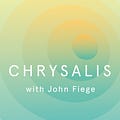


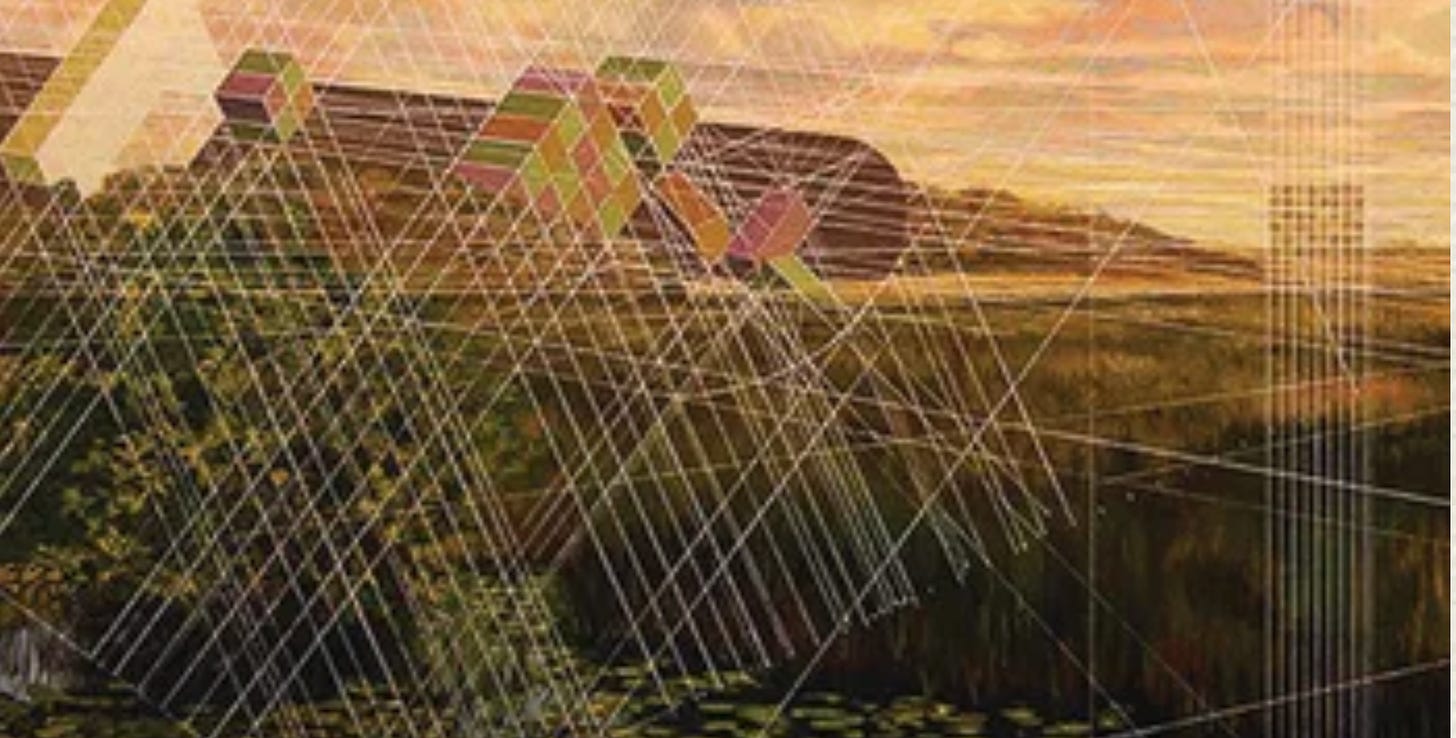
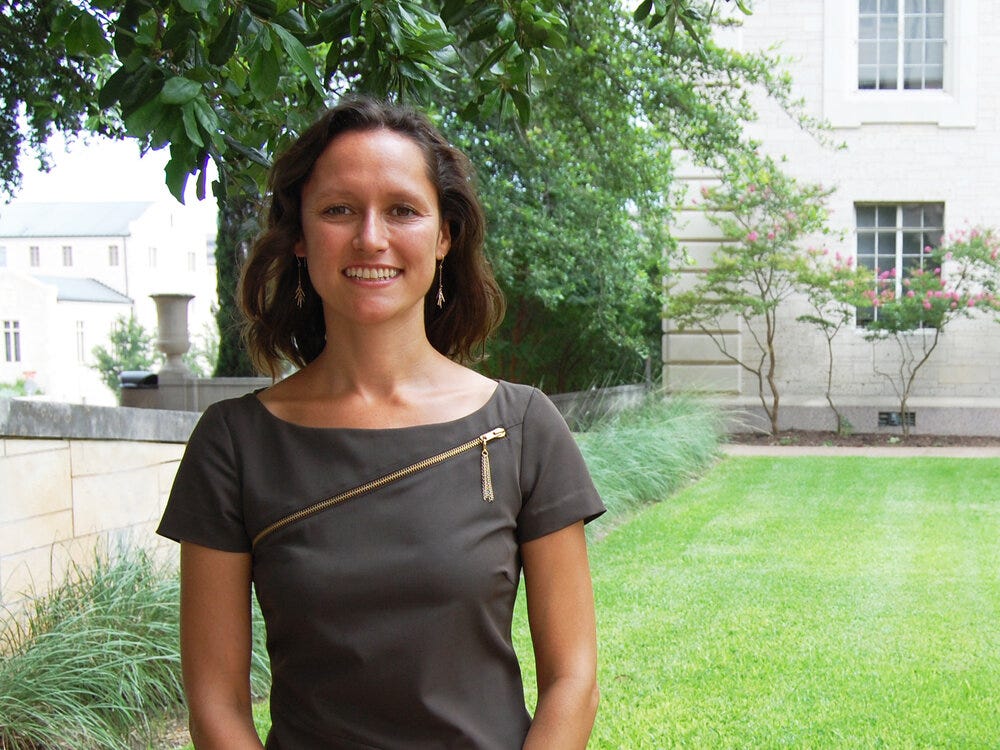
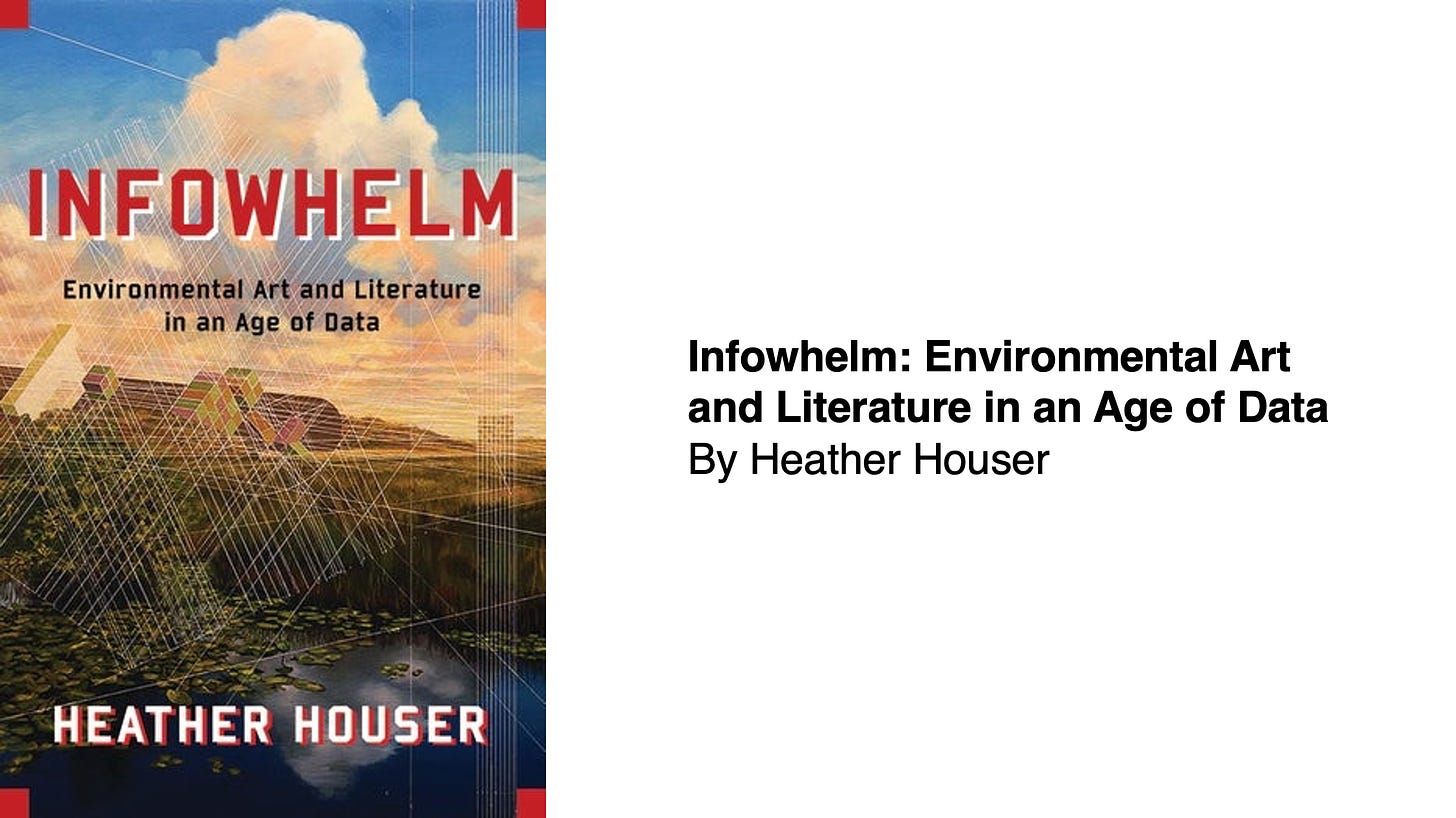
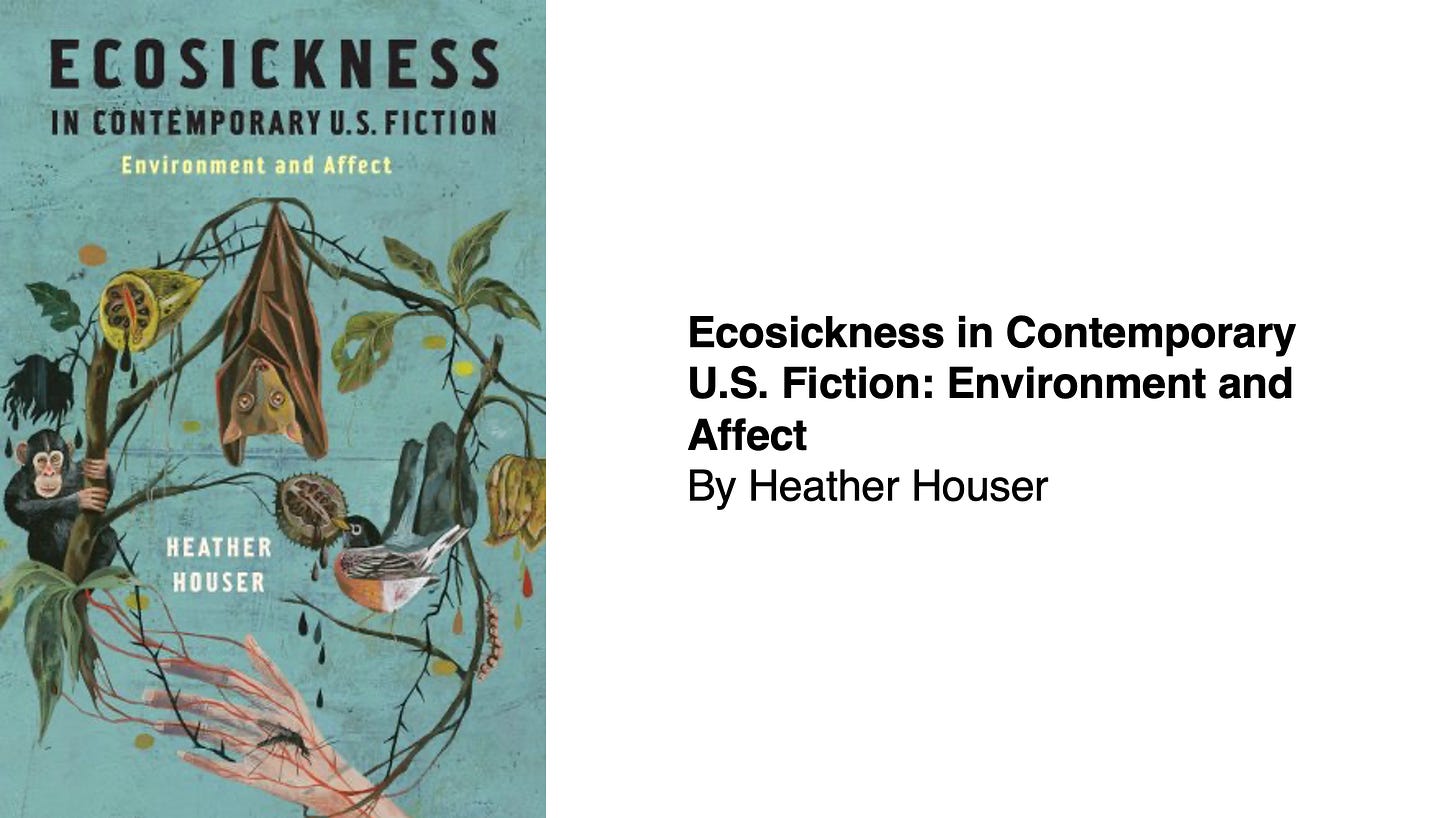
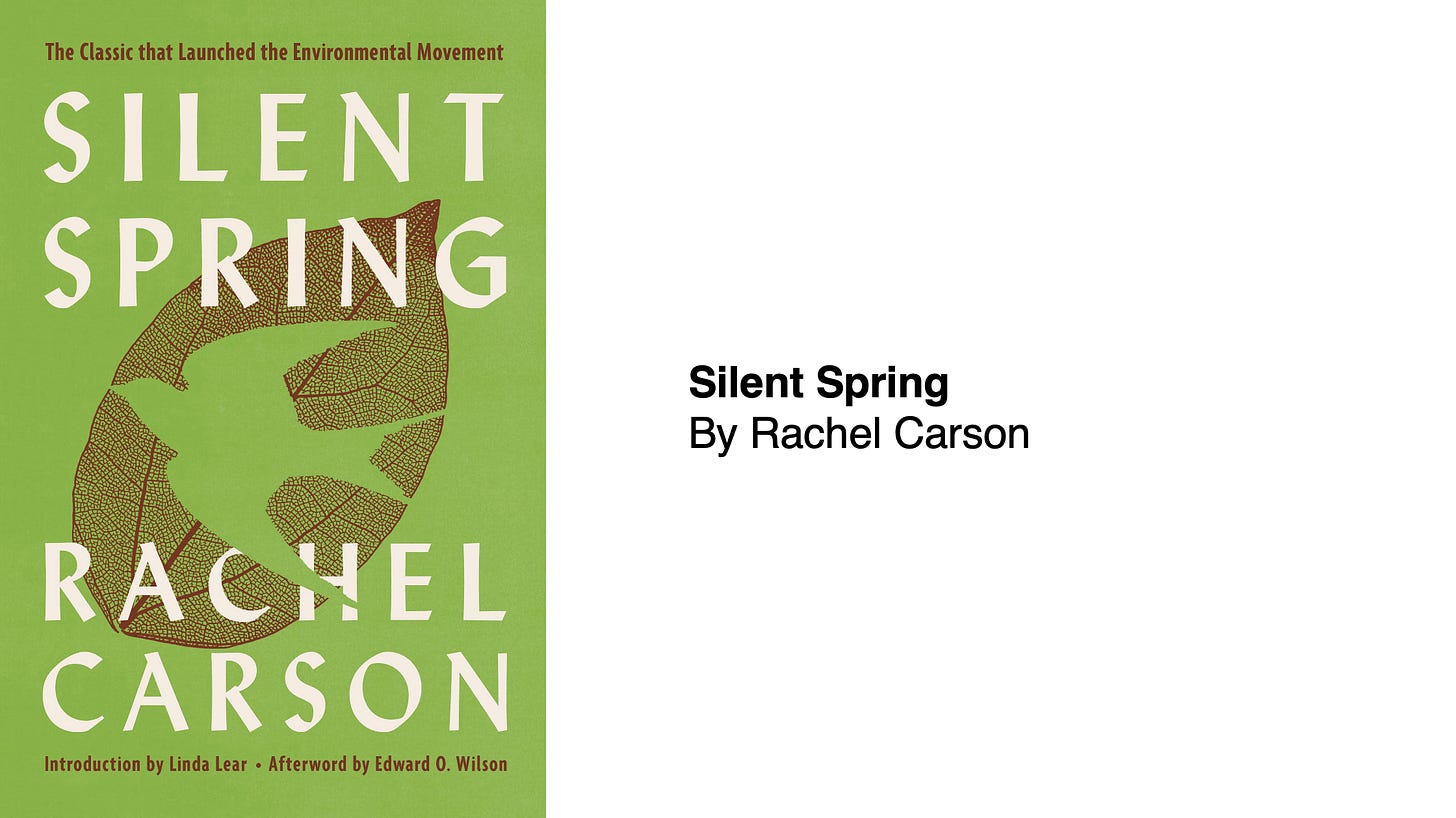
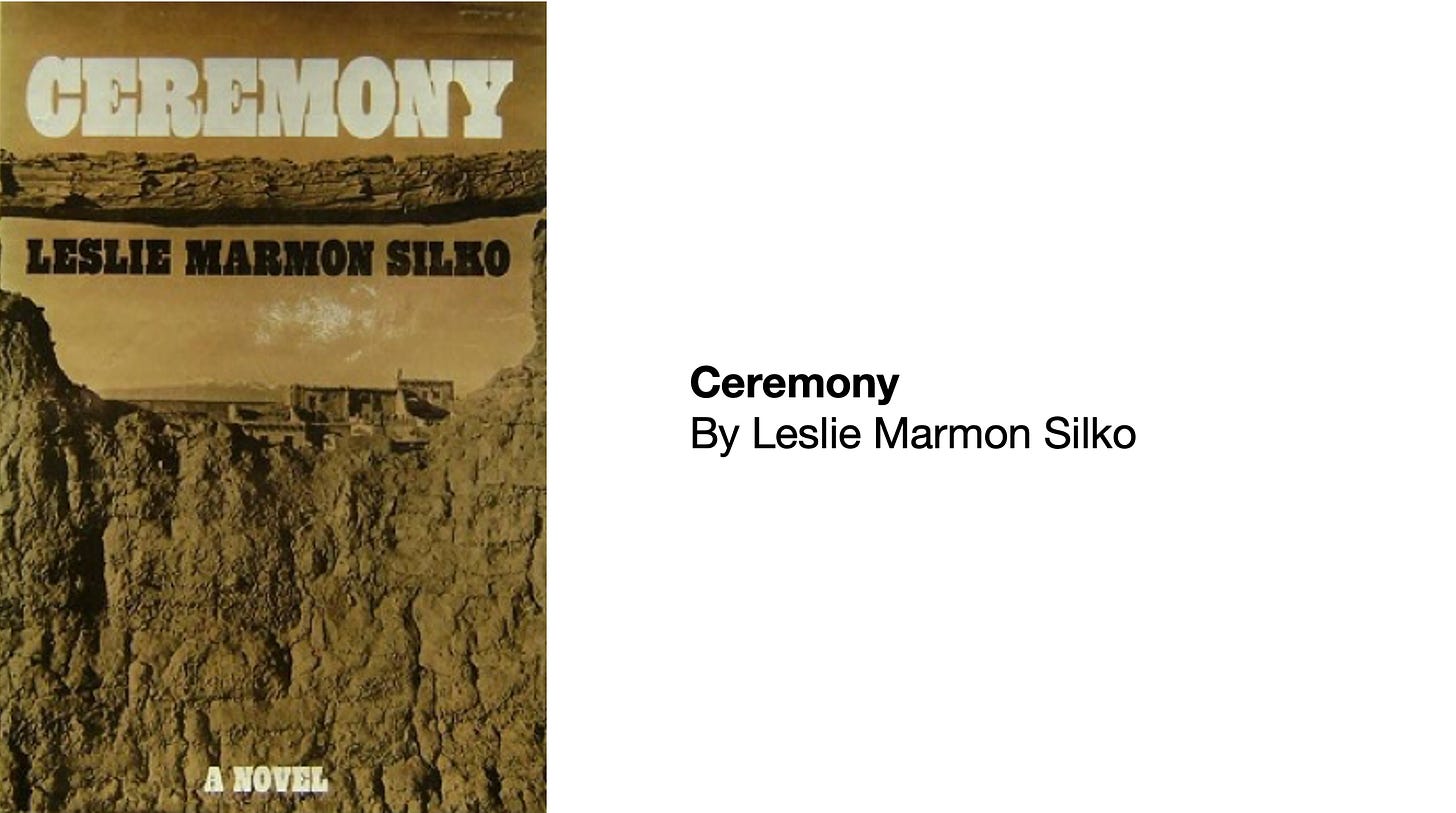
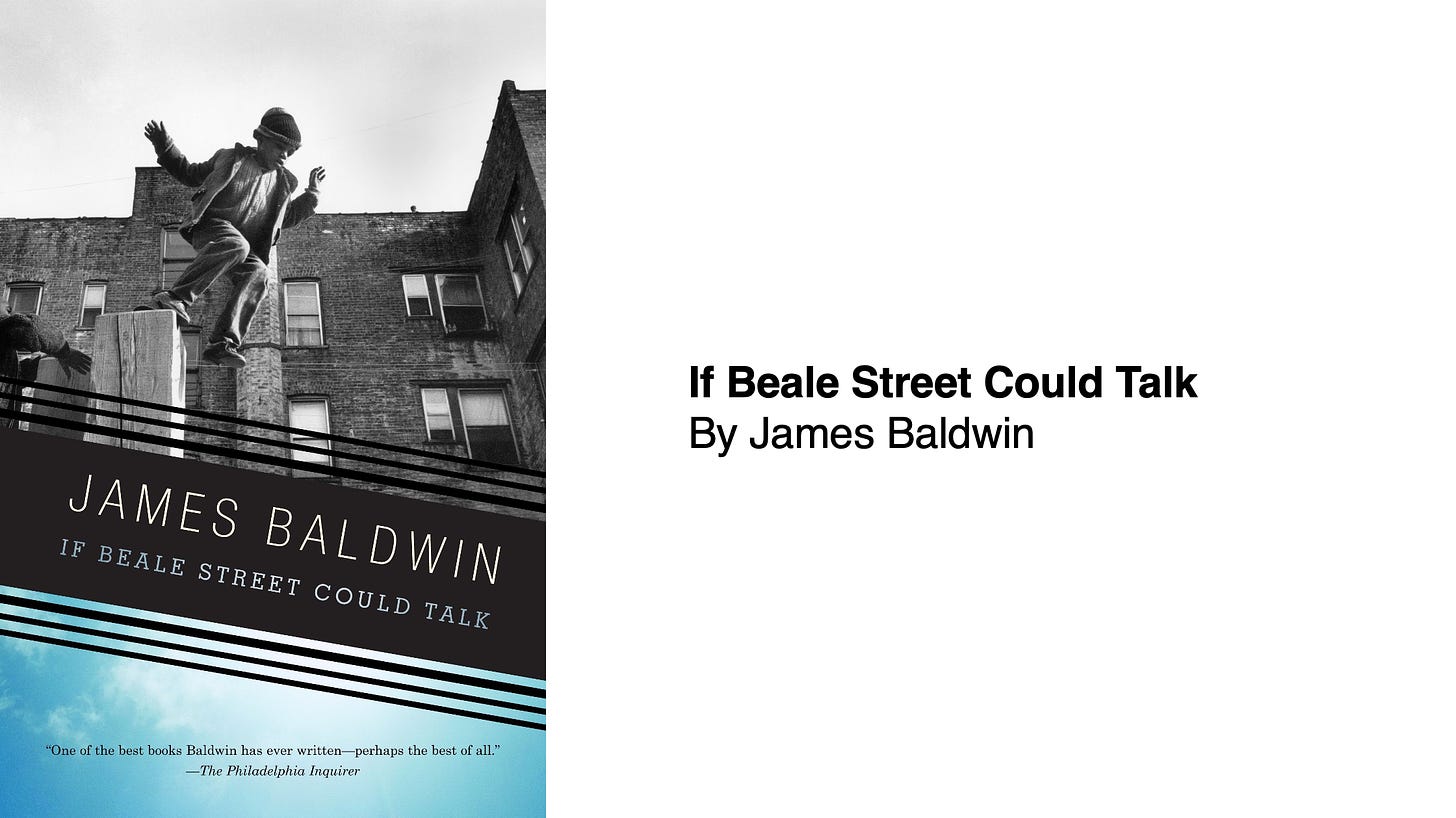
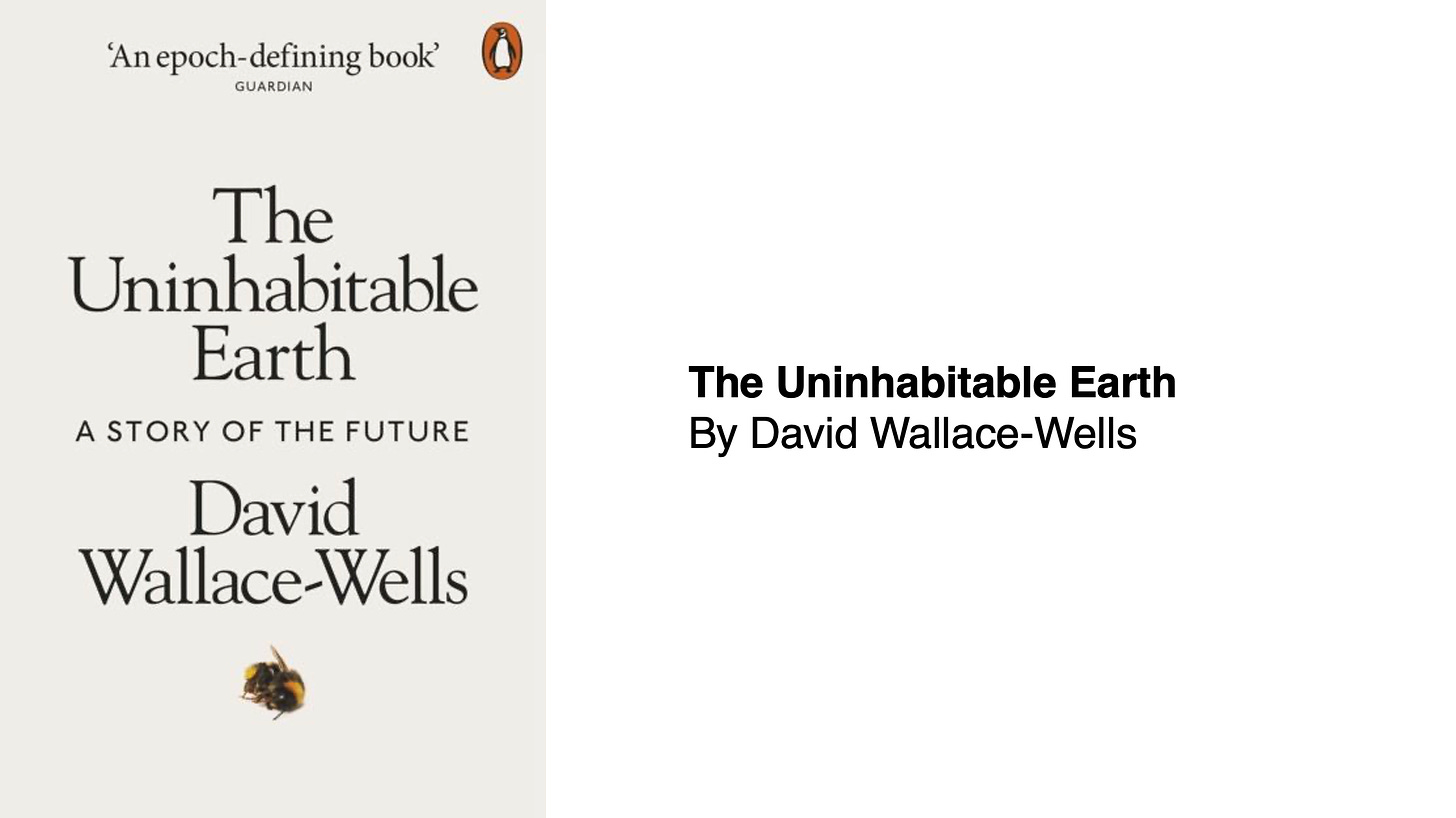
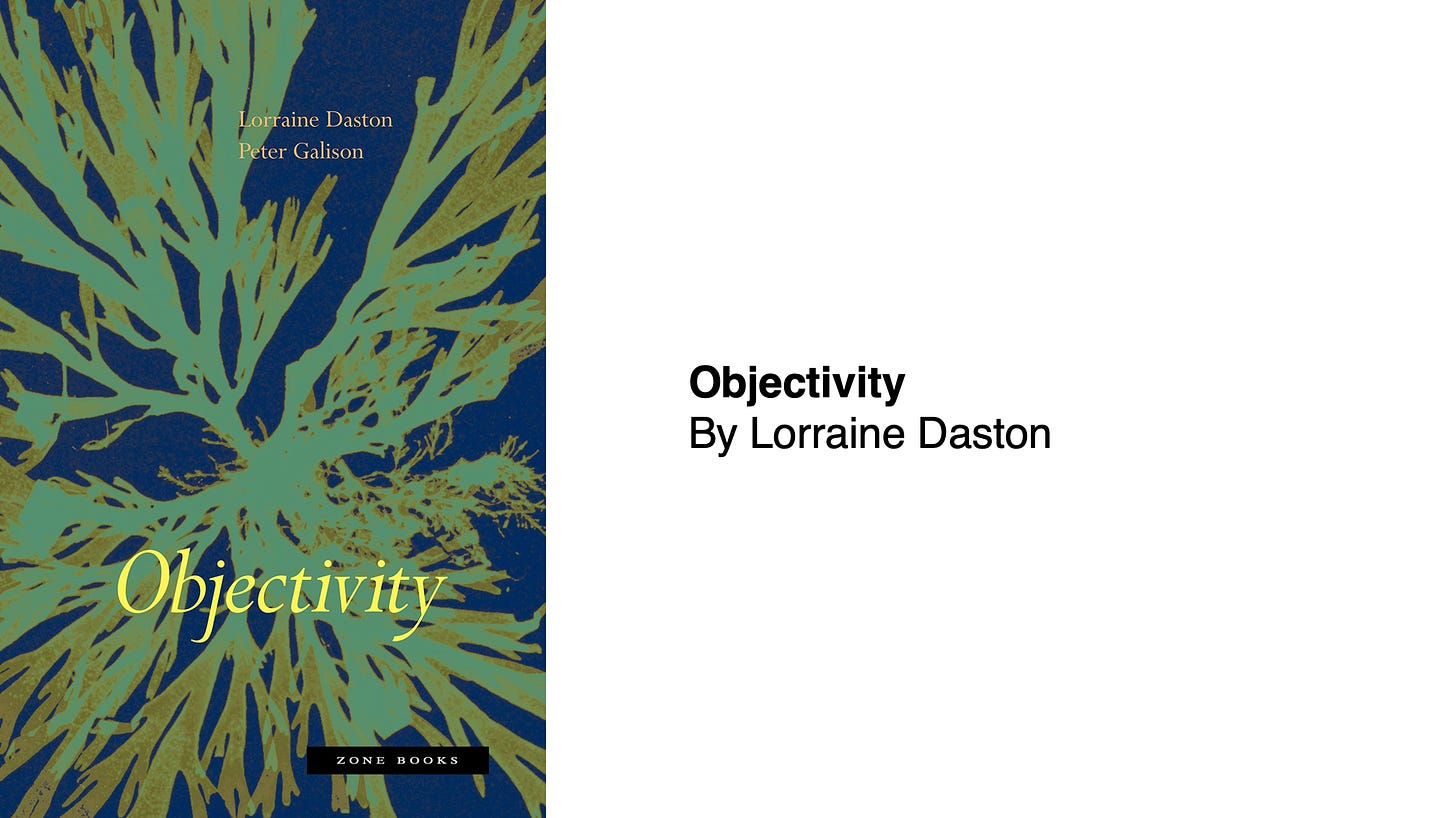


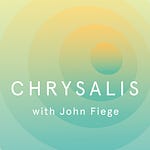
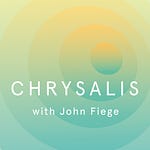
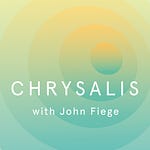
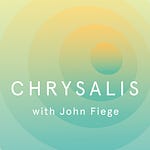
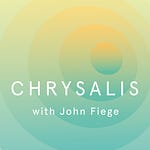
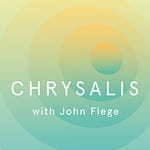
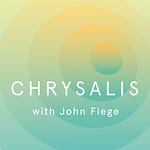
5. Heather Houser — Deluged by Data in the Climate Crisis